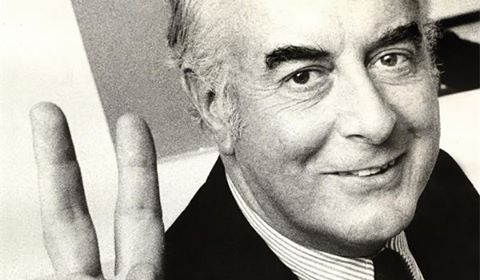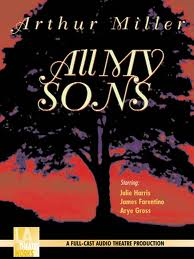Author Archive: Peter Jakobsen
All My Sons
(by Arthur Miller) Perhaps shaded by The Crucible and Death of a Salesman, this is Miller’s most nakedly and emotionally satisfying play, centred on a father’s guilt and a son’s retribution.
Continue Reading →Alexander Hamilton
(by Ron Chernow) Definitive biography deals comprehensively with the life and work of the highly contentious Treasurer of the early republic. (It largely bears out Gore Vidal’s fictional portrait of him in Burr). Hamilton was fundamentally a pessimist in an optimist’s land, who wrote that its inhabitants were fit for chains, hoping only for gold ones. [Update: In Vidal’s novel Burr, Hamilton, a powerful figure in the highly-charged early political days of the American Republic, is referred to as “that Creole bastard.” The record is redressed, better late than never, by Chernow’s fine work and a new musical by Lin-Manuel Miranda, in…
Continue Reading →Bigger Than Life
(dir. Nicholas Ray) (1956) Uber-normal 50s family has life turned on its head when Dad gets hooked on cortisone and starts wearing robes and a crown. It’s like The Brady Bunch meets Oliver Twist and it fairly crackles. James Mason’s great performance is almost too big for the film – you want him strait-jacketed only after he stabs everyone in the cast.
Continue Reading →Badlands
(dir. Terence Malick) (1973) Bleak and stark it may be but there is a fairy tale quality in this sanitized, loose but compelling adaptation of the Starkweather-Fugate crime spree in Nebraska and Wyoming in 1957/8. Kit (Martin Sheen) and Holly (Sissy Spacek) brilliantly capture the sweetest, stupidest and deadliest couple since Bonnie and Clyde. Holly’s girlish internal monologues are laugh-out-loud, close to the style of Stephen Leacock’s Memoirs of Marie Mushenough. This is Malick’s magum opus.
Continue Reading →Vale Gough Whitlam

Vale Edward Gough Whitlam (11 June 1916 – 21 October 2014) After the Australian Labor Party failed to win the cliffhanger federal election of 1961, in which it won no seats in Victoria, the leader, Arthur Calwell, failed to quell the left’s hatred of aid to non-government schools that lost it a stack of votes among working class Catholics. Eventually, on 8 February 1967, having not held the reins of power for the better part of a generation, federal caucus turned to Whitlam, who stared down the Victorian State Conference in June of that year (saying of their electoral death…
Continue Reading →




